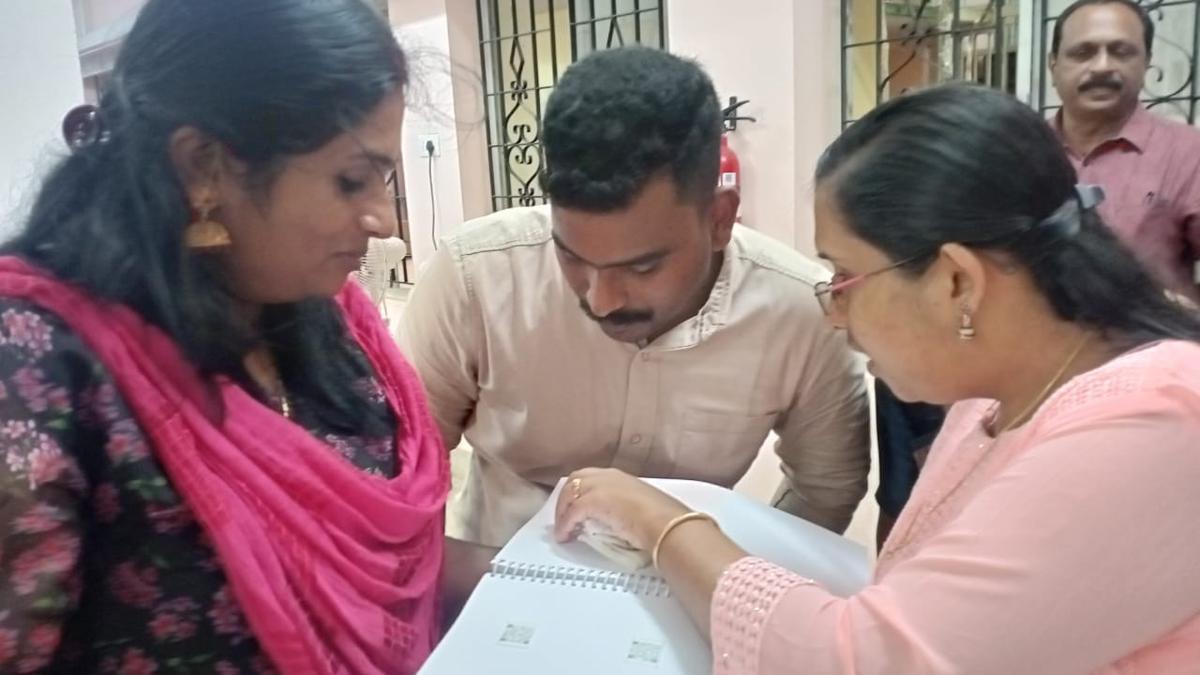
A handbook for more accessible official documentation by the differently abled
The Hindu
Reshmi Mohan, a differently-abled employee, raised the issue of inadequate training programmes for the differently-abled. In response, Kerala's Local Self Government Dept. created a handbook, accessible via braille, audio, sign language video, large-sized font, etc. The book provides info on grass-root level governance, RTI Act, panchayati raj Act, civil registration, etc. It is a laudable, inclusive gesture, and a model for other departments to replicate. It ensures no one is left out, bringing joy to those excluded.
At three years of age, pneumonia snatched away Reshmi Mohan’s hearing ability. Since she continued to study in a regular school and did not communicate using sign language, she depended on lip reading in her daily interactions. But these limitations did not stop her from gaining employment in Kerala’s Local Self Government department in 2004 and from rising to the post of Assistant Secretary at the Bharananganam gramapanchayat.
Yet, she had always felt that the government’s training programmes were not suited to the differently abled employees, many of whom had no way of understanding what was being taught or had difficulty accessing the material provided to them.
In an interactive session of differently abled persons with Chief Minister Pinarayi Vijayan in 2021, she raised this issue, setting in motion a chain of events including the beginning of special training programmes for differently abled employees in the department.
As an outcome, the Local Self Government department in association with Kerala Institute of Local Administration (KILA) has put together a differently abled-friendly handbook, detailing the basic laws and public services related to the department, which can be read using braille, through audio and sign language, through video accessed using a QR code, with large-sized font for those with limited vision, among a host of methods.
During a training session for the differently abled employees last week, Minister for Local Self Governments M.B. Rajesh released the book. The book is seen as a first step towards more accessible official documentation, training documents, and even Government Orders and Acts.
B.S. Vinayachandran, accessibility expert, who helped the KILA to develop the material, says it is a laudable, inclusive gesture from the department to create focussed programmes and content.
“In 2014, India became the first country to ratify the Marrakesh Treaty to facilitate access to published works for persons who are visually impaired or otherwise print-disabled. This book is one of the first such attempts in something related to governance and public service. It can be useful not just for the differently abled employees, but for common people with various disabilities. It has important information on grass-root level governance from grama sabhas to RTI Act, Panchayati Raj Act, and civil registration,” says Vinayachandran.





















 Run 3 Space | Play Space Running Game
Run 3 Space | Play Space Running Game Traffic Jam 3D | Online Racing Game
Traffic Jam 3D | Online Racing Game Duck Hunt | Play Old Classic Game
Duck Hunt | Play Old Classic Game











